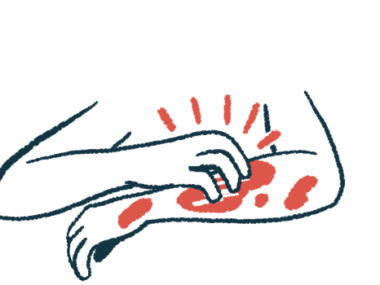FDA Extends Decision on Filsuvez Gel for Skin Wounds to February
Written by |

The U.S. Food and Drug Administration (FDA) has extended by three months its review of Amryt Pharma’s application seeking approval of Filsuvez (Oleogel-S10), a topical gel to treat skin wounds in people epidermolysis bullosa (EB).
A regulatory decision is now expected on Feb. 28 — it previously was set for Nov. 30 — according to the Prescription Drug User Fee Act date. The extension gives the FDA time to review additional data submitted earlier by Amryt, the company announced in a press release.
The FDA, which granted Filsuvez priority review in June, said the additional information constituted a major amendment to the original application and therefore required an extension. The agency has also requested new information regarding existing study data to aid in its evaluation.
A similar approval request has been filed with the European Medicines Agency, which issued a list of outstanding issues that included major objections. Amryt reported that is in the process of addressing these objections. A recommendation on whether to approve Filsuvez by the Committee for Medicinal Products for Human Use, a branch of EMA, is expected in January.
“We are well positioned to address these regulatory requests from our existing data within the time periods required and we look forward to our continued productive discussions as the regulatory agencies complete their review,” Joe Wiley, Amryt Pharma’s CEO, said in the release.
“If approved, we are confident in the potential for Oleogel-S10 to be an effective therapy for patients suffering from this terrible condition and are ready to launch what will be the first to market novel therapy in EB,” he added.
Filsuvez is a skin gel made of an extract from birch tree bark that is rich in betulin. Research indicates that betulin can regulate the inflammatory response implicated in wound healing.
The company’s application is supported by positive data from the Phase 3 EASE trial (NCT03068780) assessing the effectiveness and safety of Filsuvez in wound healing compared to a placebo gel.
A total of 156 children and 67 adults with either junctional EB, dystrophic EB, or Kindler syndrome were enrolled. All had a partial thickness wound between 10 and 50 cm2 in size for at least three weeks and up to nine months.
Trial findings showed that the likelihood of complete wound closure was higher with Filsuvez compared to the placebo. Also, the therapy statistically shortened how long it took for wounds to heal — 41.3% of patients given Filsuvez had first complete closure of a target wound within 45 days, compared with 28.9% of those assigned to placebo.
Filsuvez has been granted fast track and rare pediatric disease designations by the FDA, and it has orphan drug status in both the U.S. and Europe. These designations provide regulatory incentives to speed and support its clinical development.






